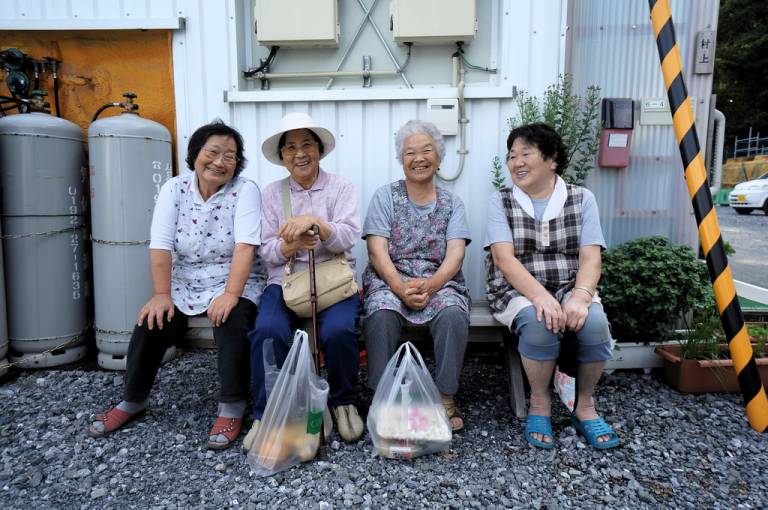What can we learn from Japan about ageing healthily?
14 January 2019
A new report outlining lessons the world can learn from Japan on applying evidence-based policy to help a population age healthily has been published by the World Health Organization.

A new report outlining lessons the world can learn from Japan on applying evidence-based policy to help a population age healthily has been published by the World Health Organization.
Advancing universal health coverage through knowledge translation for healthy ageing is co-authored by ICLS researcher Dr Noriko Cable. In one of the report's chapters she outlines the implications for other countries of the Japan Gerontological Evaluation Study (JAGES), a programme of research which has contributed to key policy improvements for the provision of long term health care in Japan.
Dr Cable said: "The modern world is confronted by the challenge of caring for the health and social needs of an increasing aging population and Japan currently boasts one of the longest life expectancies in the world. Findings from JAGES have made a major contribution to the understanding of this phenomenon and point to ways forward for other countries seeking to tackle this issue head on."
She added: "This case study describes the evolution of this cutting-edge research initiative, which involves both basic epidemiological research and implementation research. Its findings underscore the importance of prevention and health promotion for healthy ageing, as well as effective strategies for communication and collaboration between researchers and public officials to facilitate knowledge translation. Elements of the various strategies employed by the JAGES team are adaptable to different health issues as well as to diverse resource environments including low- and middle-income contexts."
Amongst the many achievements of the initiative, JAGES has introduced new ideas to public health and social epidemiology and informed policy improvements such as the design of a 10-year national health policy called Health Japan 21 (2013-22). This core research also brought to light the disparities between social classes and communities in Japan, helping to create new thinking around national policies.
It's hoped the freely-available report can be used as a resource by countries looking for approaches and ideas to achieve Universal Health Coverage and the UN's Sustainable Development Goals.
 Close
Close

